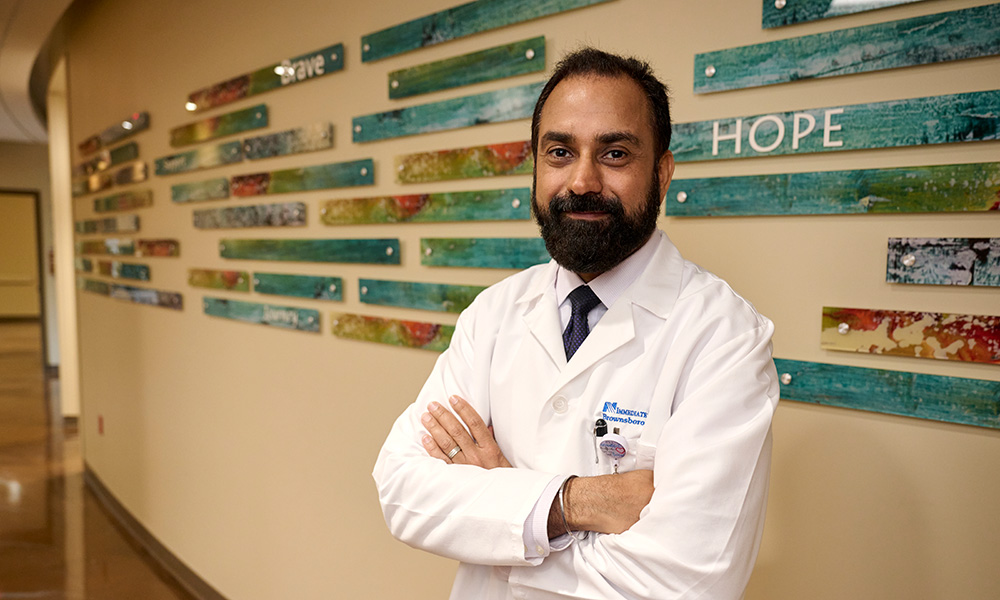Gastric cancer red flags include history of ulcers, unexplained abdominal pain that doesn’t respond to proton pump inhibitors, unexplained weight loss and vomiting blood.

The prognosis for gastric cancer is closely tied to the stage of the diagnosis. When found early, gastric cancer has a better survival rate.
“Given the difference early diagnosis can make, it’s important that clinicians are aware of the red flags for gastric cancer,” said Jaspreet S. Grewal, M.D., Ph.D., a gastrointestinal oncologist at Norton Cancer Institute.
There is no national screening program or recommendation for gastric cancer, which is one of the leading causes of cancer death in the world.
Gastric cancer red flags include a history of ulcers, unexplained abdominal pain that doesn’t respond to treatment with proton pump inhibitors, unexplained weight loss, lack of energy, discomfort swallowing, nausea and vomiting blood. A palpable abdominal mass indicates advanced disease.
Refer a patient
To refer a patient to Norton Cancer Institute, visit Norton EpicLink and open an order for Oncology.
Read more: Updates in screening and treatment of leading gastrointestinal cancers
Gastric cancer risk factors
A family history of gastric cancer in a first-degree relative is associated with double to triple the risk of gastric cancer.
Helicobacter pylori (H. pylori) infection is the other main risk factor for gastric cancer. The intestinal bacteria H. pylori is a significant risk factor for both gastric adenocarcinoma and gastric lymphomas.
Patients with a history of ulcer disease, unexplained dyspepsia or lymphoma should be tested for H. pylori. Successfully treating H. pylori reduces the risk of gastric cancer in the range of 35% to 50%.
A study published in the New England Journal of Medicine in 2020 found in patients with H. pylori infection who had a family history of gastric cancer in first-degree relatives, eradication treatment of H. pylori reduced the risk of gastric cancer.
In addition to a family history and H. pylori, gastric cancer is also linked to high-salt diets or places where salt is used to preserve meats. Gastric cancer is more common in China, Japan, Korea and Russia. In the United States, gastric cancer is more prevalent in some minority groups, including African American and Latino populations.
Gastric cancer standard of care
If a patient undergoes an endoscopy and a lesion is found, a CT scan and probably a positron emission tomography (PET) scan are warranted. The patient also may need another endoscopy with a special endoscopic ultrasound, which can evaluate the depth of the invasion of the gastric wall and the status of nearby lymph nodes.
“Multidisciplinary treatment for gastric cancer is key,” Dr. Grewal said. “Found early, aggressive treatment with the goal of cure is considered. This involves chemotherapy, radiation and surgery.
According to the American Joint Committee on Cancer/Union for International Cancer Control, the overall five-year survival for stage 1A gastric cancer (mucosa only) is 93.6%. It drops to 5.7% for stage 4 gastric cancer.
Dr. Grewal is board certified in internal medicine and subspecialty certified in medical oncology and hematology. He speaks multiple languages, including English, Hindi, Punjabi and Urdu. Dr. Grewal is a principal clinical trial investigator and has a passion for using leading-edge treatment and research to help cancer patients.

